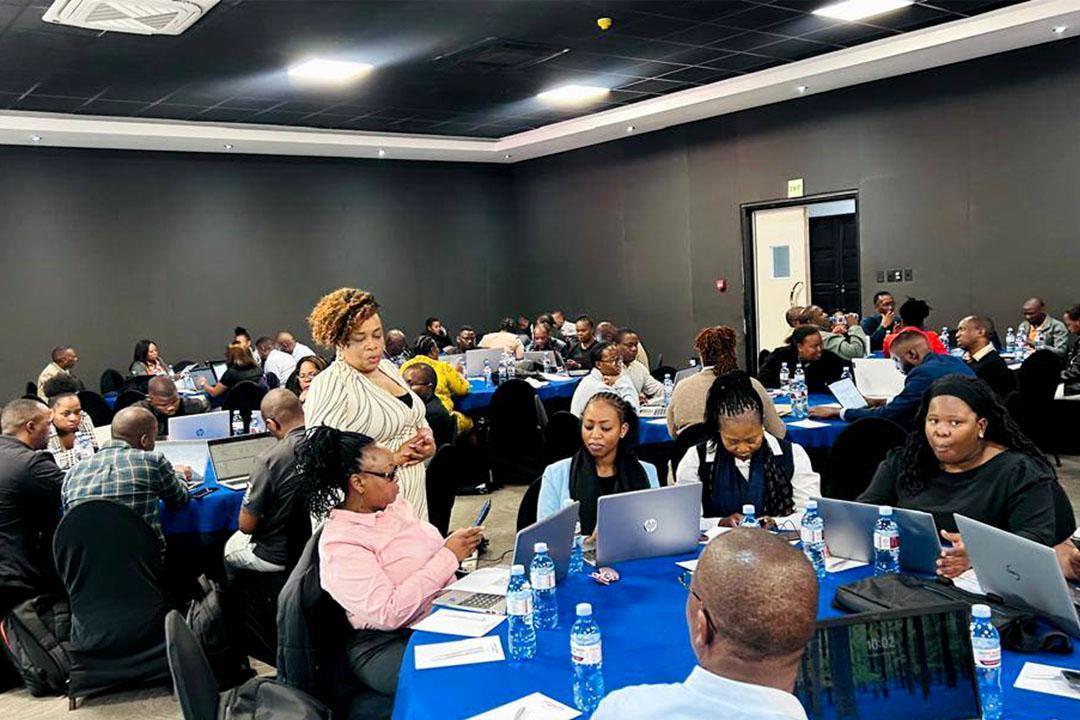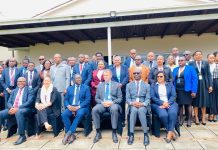Africa-Press – Eswatini. The Ministry of Finance has taken a significant step towards transforming public financial management in Eswatini, as Ministry Departments and Agencies (MDAs) convened at Happy Valley this week for a pivotal working session marking the planning phase of the national budgeting process under the new Integrated Financial Management Information System (IFMIS).
The session, facilitated by the IFMIS Project Management Unit, follows the formal issuance of the Budget Call Circular, which officially launches the annual budgeting cycle. For the first time, all MDAs are now entering their plans and budgets directly into IFMIS, a development widely seen as the beginning of a new era in how Government manages public resources.
According to the Ministry of Finance, the gathering aims to provide MDAs with real-time technical guidance and support as they begin loading their programme plans and financial proposals into the system. This collaborative approach is designed to improve coordination, reduce errors, and ensure consistency across Government.
Critically, the new process strengthens alignment with the National Development Plan and the Government’s Plan of Action—links that were previously missing in the traditional, paper-based budgeting framework. Officials noted that modernising these processes will allow national priorities to be better reflected in budget allocations, improving the effectiveness of public spending.
At the core of the reform is the introduction of programme-based planning and budgeting. This modern approach enables Government to prioritise outcomes rather than inputs, ensuring that resources are directed towards programmes that deliver the greatest impact. It also offers improved transparency, making it easier to track how public funds are allocated and used.
The IFMIS, once fully rolled out, will integrate the entire public financial management cycle end-to-end. Functions such as procurement, payments, accounting, auditing, asset management and reporting will all be processed through a single digital platform. This integration is expected to reduce duplication, enhance accountability, and strengthen internal controls across the public sector.
By April 2026, the Government is expected to have implemented all IFMIS modules, meaning that all payments across MDAs will be processed exclusively within the system. This represents a decisive break from the legacy mainframe technology—introduced in 1992—which has long been criticised for its limited functionality, lack of compatibility with modern systems, and dependency on outdated manual processes.
Senior officials at the Ministry of Finance have hailed the transition as a milestone in the ongoing reform agenda aimed at improving efficiency and service delivery. By adopting a fully digital and integrated financial platform, the Government seeks to enhance fiscal discipline, reduce leakages, and improve the timeliness of financial information.
The shift is also expected to benefit citizens. With streamlined processes, better oversight, and improved reporting, Government’s ability to deliver essential services is anticipated to strengthen, ensuring that public funds are used effectively and in the best interests of all Emaswati.
As the budgeting process unfolds, the Ministry of Finance will continue offering technical support to MDAs to ensure a smooth transition and to fully embed the new system within the machinery of Government.
For More News And Analysis About Eswatini Follow Africa-Press







